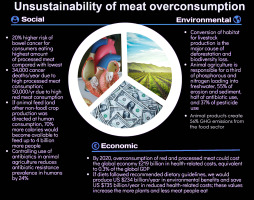
Health Benefits
Following a vegetarian diet has been linked to numerous health benefits, supported by substantial research in nutrition and public health. Among the most recognized benefits is its ability to reduce the risk of chronic conditions. According to Rajaram and Sabaté (2000), vegetarians are less likely to develop obesity, heart disease, high blood pressure, and type 2 diabetes when compared to those who consume meat regularly. These findings highlight the positive impact of plant-based diets in helping improve long-term health and support the idea that dietary choices play a significant role in preventing some of the most common and serious health conditions affecting populations today.
Vegetarian diets are often naturally lower in saturated fats and cholesterol, which are major contributors to heart disease. Vegetarians typically consume higher amounts of dietary fiber, antioxidants, and essential vitamins and minerals. These nutrients help reduce inflammation, lower blood pressure, and improve heart health (Rajaram & Sabaté, 2000); (Mulford, 2016). In particular, fiber-rich diets are known to support healthy digestion and maintain balanced blood sugar levels, reducing the risk of type 2 diabetes. Research also suggests that vegetarians usually weigh less and have lower BMI and healthier weight, which further contributes to reducing the risk of chronic conditions such as hypertension and stroke (Mulford, 2016).

While some concerns have been raised about the adequacy of a vegetarian diet, especially regarding protein, iron, and vitamin B12 intake, experts emphasize that a well-planned vegetarian diet can provide all the necessary nutrients for maintaining overall health. The Academy of Nutrition and Dietetics has stated that properly planned vegetarian and vegan diets are nutritionally adequate and can help prevent and treat certain diseases (Mulford, 2016). Nutrient-rich foods such as dark green leafy vegetables, beans, lentils, nuts, seeds, fortified cereals, and plant-based milk alternatives can supply essential nutrients like iron, calcium, and vitamin B12. It is important for vegetarians to be mindful of these nutrients, as deficiencies in vitamin B12 and iron, for example, can lead to anemia and fatigue if not properly managed (Mulford, 2016). However, with proper attention to dietary variety and, if needed, supplementation, vegetarian diets can support all stages of life, including pregnancy, infancy, and older adulthood.
Beyond physical health, adopting a vegetarian diet has also been linked to improved mental well-being and overall quality of life. Many individuals report feeling more energetic, focused, and emotionally balanced after transitioning to a plant-based diet (Mulford, 2016). This could be attributed to the nutrient density of whole plant foods, which provide essential vitamins, minerals, and antioxidants that support brain health and reduce inflammation. For instance, a diet rich in fruits and vegetables has been shown to promote cognitive function, reduce the risk of depression, and support a healthier aging process (Rajaram & Sabaté, 2000). Additionally, reducing or eliminating meat consumption can lead to fewer digestive issues, as plant-based diets tend to be higher in fiber and promote regular bowel movements and gut health.

The health benefits of vegetarianism are not limited to the individual but can also influence family members and broader social networks. According to research by Venkatraman et al. (2023), dietary choices are often interconnected within households, with the adoption of plant-based foods potentially leading to healthier eating habits among family members. This ripple effect can contribute to a wider culture of wellness and shared commitment to health within communities. Moreover, studies have shown that reducing meat consumption can lower the risk of diet-related diseases at a population level, supporting public health efforts aimed at preventing chronic illnesses and reducing healthcare costs (Vellinga et al., 2022).
It is also important to consider how health perceptions are shaped by societal and cultural factors. The marketing of plant-based products as healthier alternatives to traditional meat has played a significant role in the growing popularity of vegetarian diets (Venkatraman et al., 2023). While some consumers may initially adopt a vegetarian diet for health reasons, they often find additional benefits that reinforce their commitment to the lifestyle, including improved energy levels, weight management, and a sense of overall well-being. However, it is essential to approach vegetarianism with a balanced perspective, recognizing that not all plant-based diets are automatically healthy. Highly processed vegetarian foods, such as meat substitutes and packaged snacks, can still be high in sodium, added sugars, and unhealthy fats. Therefore, focusing on whole, minimally processed plant foods is key to reaping the full health benefits of vegetarianism (Rajaram & Sabaté, 2000; Mulford, 2016).
In summary, the health benefits of a vegetarian diet are supported by a robust body of scientific evidence. From reducing the risk of chronic diseases to promoting mental well-being and fostering healthier eating patterns in families and communities, vegetarianism offers a powerful pathway toward improved health. With careful planning and awareness of nutrient needs, a plant-based diet can provide all the essential nutrients required for optimal health at every stage of life. As more people become aware of these benefits, vegetarianism is increasingly recognized not just as a personal dietary choice but as a proactive step toward a healthier future.
On this page
- Evidence-based benefits
- Nutrients to watch
- Mental well-being
- Family & community effects
